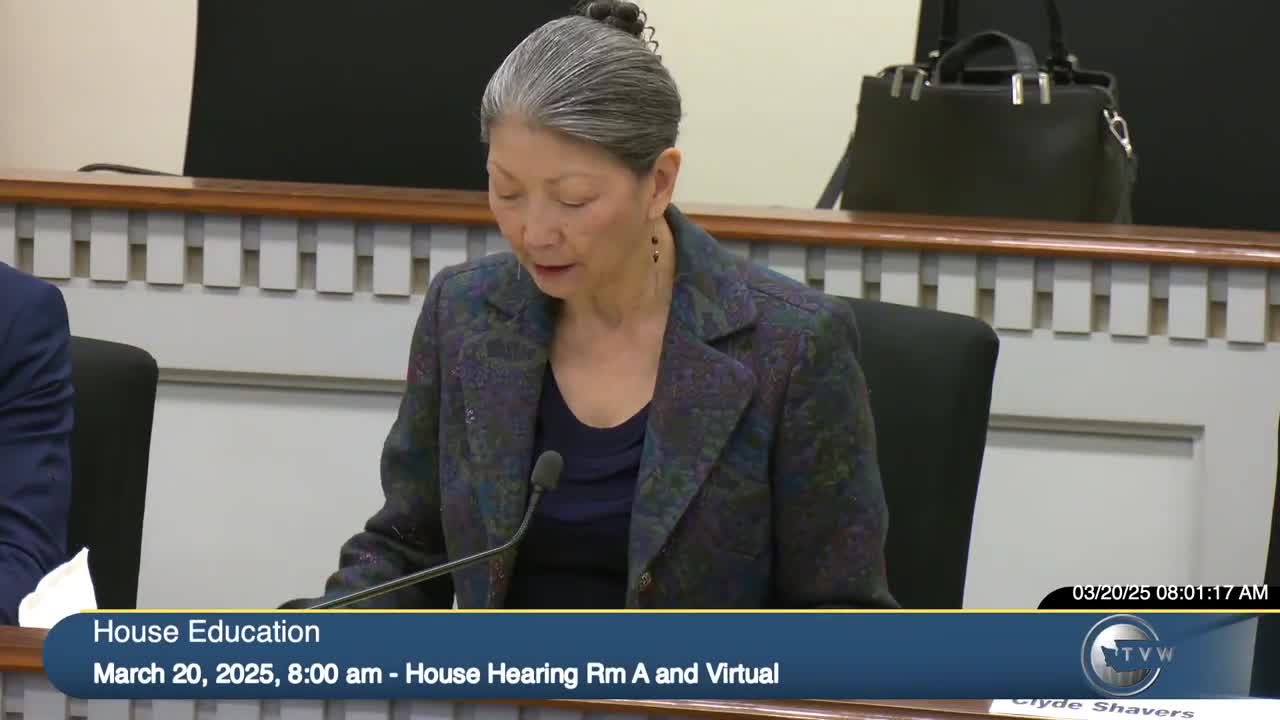Article not found
This article is no longer available. But don't worry—we've gathered other articles that discuss the same topic.
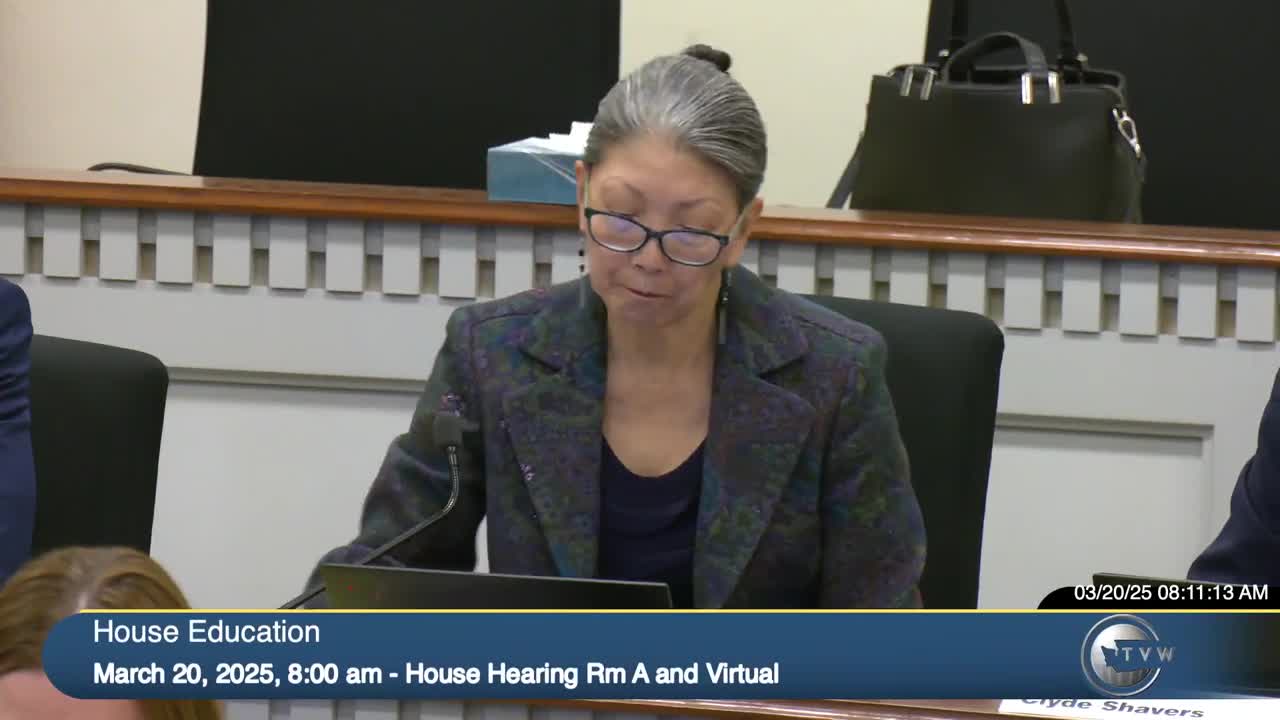
Committee reports bill extending special-education services through end of school year a student turns 22
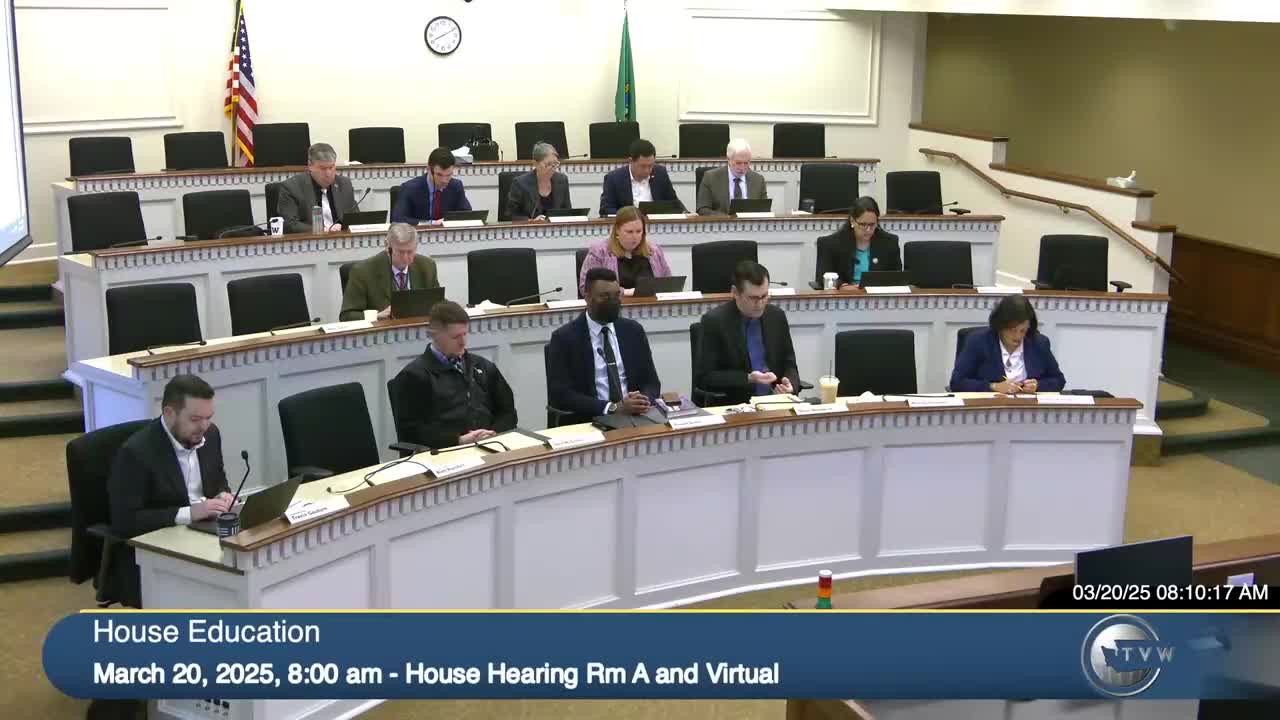
Panel approves option for remote statewide tests for online students
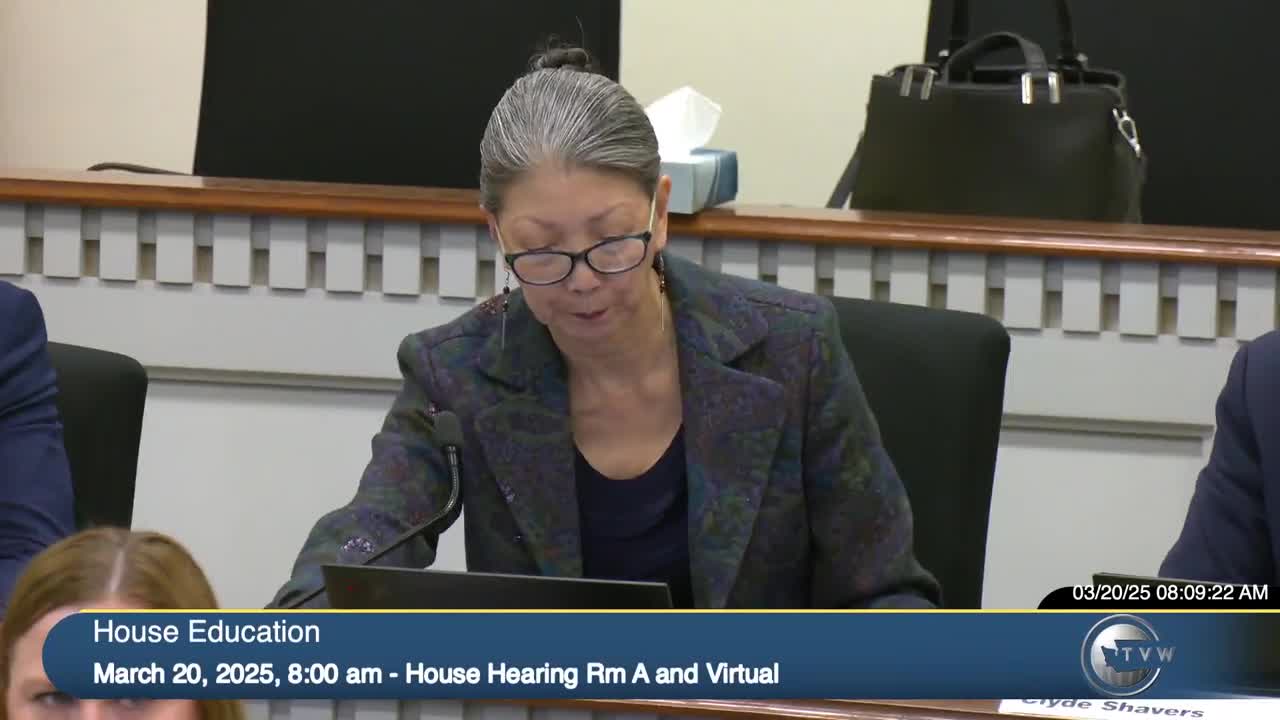
Committee advances bill requiring tribal history and government in social studies by 2026
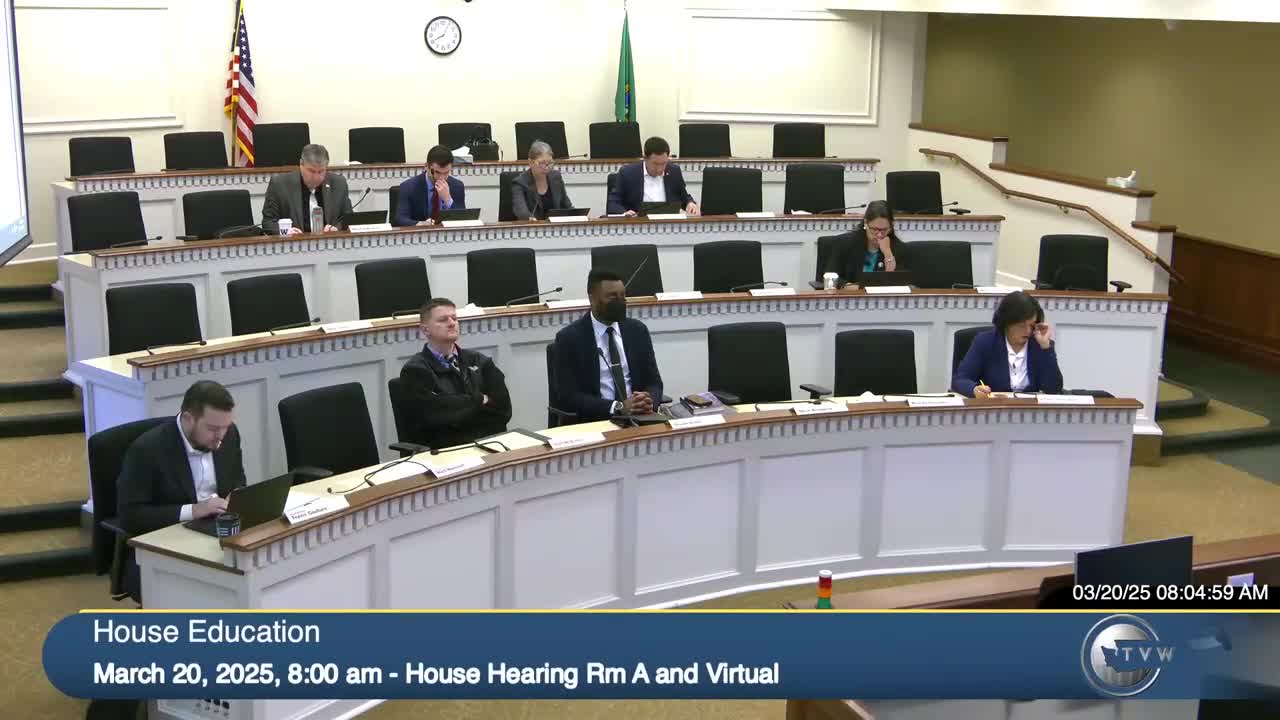
Committee advances competency-based education bill after amendment fails
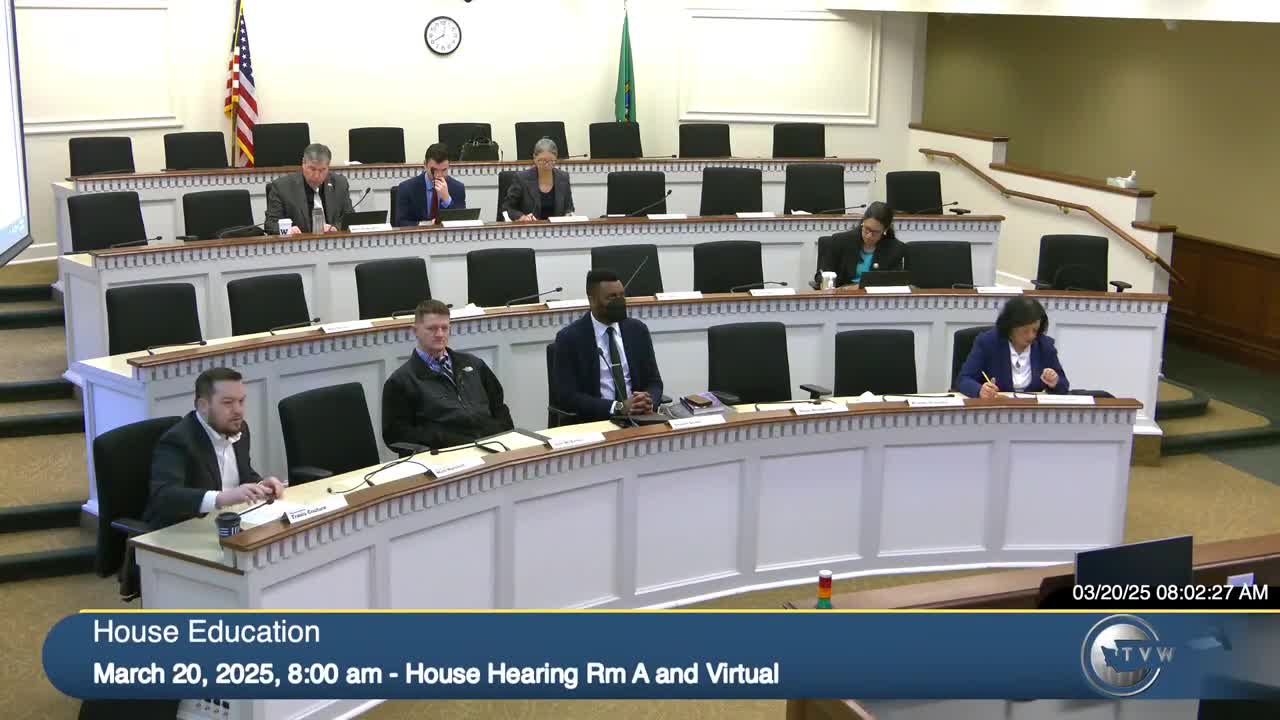
Panel approves certification requirement for educational interpreters
